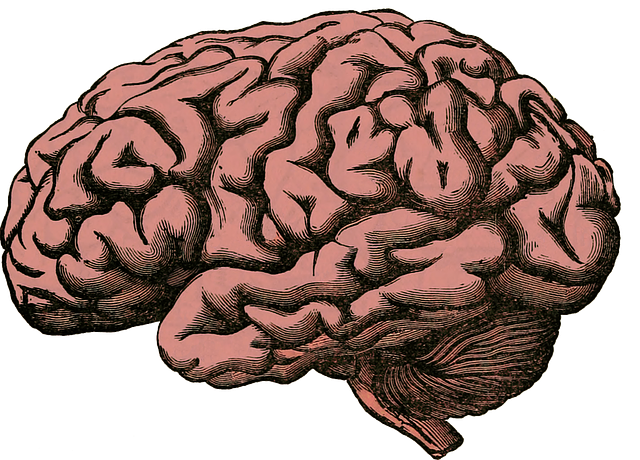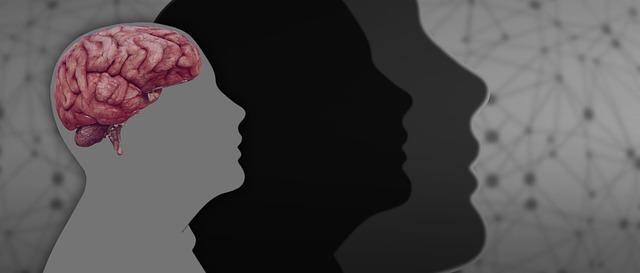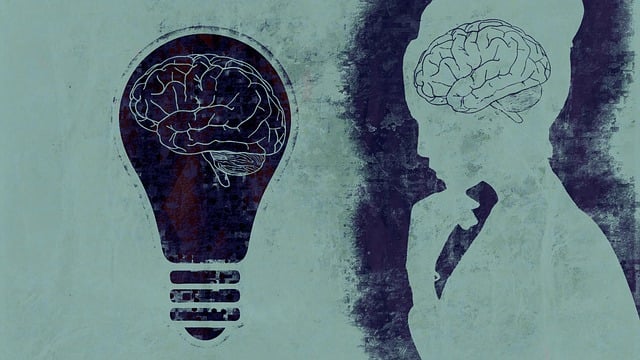Emotional Intelligence (EI) is a vital tool for achieving mental health and well-being, especially in managing eating disorders, as demonstrated by Arvada Eating Disorders Therapy. Through self-awareness exercises, mindfulness practices like meditation, and emotional regulation techniques, individuals gain control over their emotions and triggers. Social Skills Training and community outreach programs reinforce these skills, leading to improved resilience and quality of life. Empathy development strengthens relationships while public campaigns promoting mental wellness coaching contribute to healthier lifestyles. Arvada Eating Disorders Therapy emphasizes the impact of EI on all aspects of life, advocating for better communication and stress management within communities and organizations.
Emotional intelligence (EQ) is a powerful tool for personal growth and well-being, offering a competitive edge in both professional and personal relationships. This article explores the multifaceted concept of EQ, guiding readers through its core components. We’ll delve into the importance of self-awareness as a cornerstone of resilience, the transformative power of empathy and social skills in enhancing connections, and practical strategies for managing emotions effectively. For those seeking support, Arvada Eating Disorders Therapy provides valuable resources to foster emotional intelligence.
- Understanding Emotional Intelligence: A Foundation for Well-Being
- The Role of Self-Awareness in Building Resilience
- Enhancing Relationships Through Empathy and Social Skills
- Strategies for Managing Emotions Effectively: From Awareness to Regulation
Understanding Emotional Intelligence: A Foundation for Well-Being

Emotional intelligence (EI) is a foundational aspect of overall well-being and mental health. It involves recognizing, understanding, managing, and effectively utilizing emotions—both one’s own and others’. For individuals seeking Arvada Eating Disorders Therapy, developing emotional intelligence can be transformative. By cultivating EI, individuals learn to identify and express their feelings in healthy ways, fostering better relationships and improved coping mechanisms. This is particularly beneficial in navigating the complexities of eating disorders, where emotions often play a significant role.
The process of enhancing EI includes self-awareness exercises, empathy development, and learning to regulate emotional responses. Social Skills Training and Community Outreach Program Implementation can further reinforce these skills by providing opportunities for practice and feedback. By focusing on depression prevention through emotional intelligence, individuals equipped with these tools can better manage stress, build resilience, and enhance their overall quality of life.
The Role of Self-Awareness in Building Resilience

Self-awareness is a cornerstone in building resilience to emotional challenges, especially for individuals navigating complex issues like eating disorders. Arvada Eating Disorders Therapy highlights that by understanding one’s emotions and triggers, individuals can develop a deeper sense of self-acceptance and control. This awareness allows people to recognize when they’re facing difficult feelings or situations and take proactive steps to manage them effectively.
Moreover, cultivating mindfulness through practices like Mindfulness Meditation has been shown to enhance self-awareness, enabling better emotional regulation. Public Awareness Campaigns Development can play a pivotal role in promoting such practices, thereby contributing to the broader mental wellness coaching programs development. This not only builds resilience but also fosters an overall healthier and more balanced lifestyle.
Enhancing Relationships Through Empathy and Social Skills

Building emotional intelligence is a powerful tool for enhancing relationships and fostering meaningful connections. Empathy plays a pivotal role in this process, allowing individuals to understand and share the feelings of others. When someone exhibits empathy, they create a safe space where others can openly express their emotions, fears, and joys. This, in turn, strengthens bonds and encourages genuine interactions.
At Arvada Eating Disorders Therapy, we recognize the impact of emotional intelligence on various aspects of life. Our programs often include social skills training, teaching individuals how to navigate social situations with confidence and grace. By developing these skills, individuals can better communicate, collaborate, and resolve conflicts, ultimately leading to more satisfying relationships both personally and professionally. We also encourage the development of public awareness campaigns around emotional intelligence, as these initiatives promote understanding and support at a broader level, benefiting communities and organizations alike through improved communication and stress management workshops.
Strategies for Managing Emotions Effectively: From Awareness to Regulation

Developing emotional intelligence involves learning to manage emotions effectively, a skill that can be cultivated through awareness and regulation practices. The first step is recognizing and acknowledging your feelings—a process known as emotional awareness. This means paying attention to both your internal experiences and the cues from your surroundings. Once you’ve identified an emotion, it’s crucial to label it accurately. For instance, instead of feeling overwhelmed by stress, recognize it as anxiety or frustration. Understanding your emotions is a powerful tool for navigating challenges in Arvada Eating Disorders Therapy.
Emotional regulation follows awareness, where strategies like deep breathing, mindfulness meditation, and physical exercise can help manage intense feelings. These techniques promote mental health awareness and inner strength development by teaching individuals to respond rather than react impulsively. By practicing emotional well-being promotion techniques, you gain a sense of control over your emotions, leading to better decision-making and healthier relationships. This process is transformative, enabling individuals to handle even the most challenging situations with resilience.
Emotional intelligence, a powerful tool for personal growth and well-being, is within reach for everyone. By understanding and cultivating self-awareness, developing empathy, and learning effective emotion management strategies, individuals can enhance their relationships and navigate life’s challenges with greater resilience. Whether seeking support for eating disorders in Arvada or looking to improve overall mental health, investing in emotional intelligence is a transformative journey that can lead to profound personal development.














